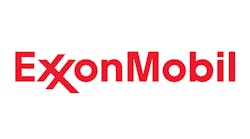ExxonMobil has agreed to pay a $1.4 million civil penalty for an alleged violation of the Clean Water Act stemming from a 2012 oil spill near Torbert, La., the Justice Department and EPA announced.
On April 28, 2012, ExxonMobil’s North Line pipeline about 20 miles west of Baton Rouge ruptured, spilling crude oil into the surrounding area, including an unnamed tributary connected to Bayou Cholpe.
The federal government’s complaint, filed in the U.S. District Court for the Middle District of Louisiana, alleges that ExxonMobil discharged at least 2,800 barrels (or 117,000 gallons) of crude oil in violation of Section 311 of the Clean Water Act.
Under a consent decree, ExxonMobil will pay the $1.4 million fine to resolve the government’s complaint against the company.
“Oil spills into our nation’s waters endanger public health and the environment and warrant concerted enforcement efforts,” said Sam Hirsch, acting assistant attorney general for the Justice Department’s Environment and Natural Resources Division. “[This] settlement achieves a just result and furthers our enforcement mission.”
The $1.4 million penalty is in addition to the costs incurred by ExxonMobil to respond to the oil spill and to replace the segment of ruptured pipeline.
As part of an administrative order from the Louisiana Department of Environmental Quality, ExxonMobil is completing cleanup of the spill. A corrective-action order from the U.S. Department of Transportation, Pipeline and Hazardous Materials Safety Administration mandates that the company also continue to perform follow-up work.
The Clean Water Act makes it unlawful to discharge oil or hazardous substances into or upon the navigable waters of the United States or adjoining shorelines in quantities that may be harmful to the environment or public health.
The proposed consent decree is subject to a 30-day public comment period and court review and approval. The comment period ends Oct. 2.
